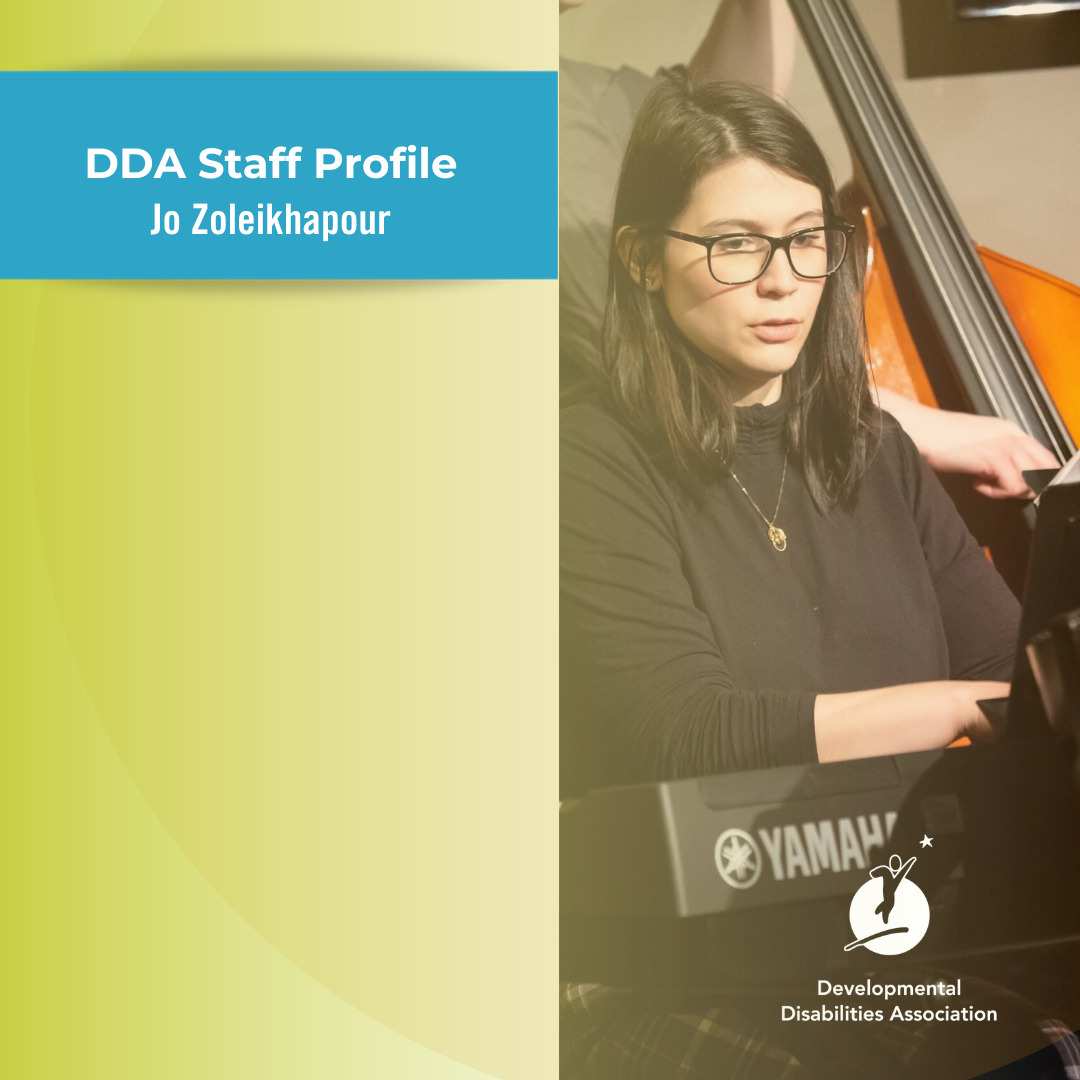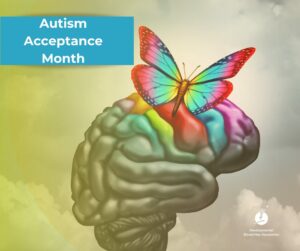Developmental Disabilities Association has wonderful employees, over 500 in fact! We met up with Jo Zoleikhapour to talk about how she brings music and music therapy to DDA clients at our West 8th location.
Tell us a little about yourself.
I am a recent graduate of the Capilano University music therapy program and I have been working for the DDA since May of 2022. I have a strong interest in music and arts as a medium for creativity, healing, community building and social justice. My primary instruments are the piano and the guitar, and I sing a little bit as well! I am also a Kurdish-Iranian immigrant and have been living in Canada since 2011.
What are your musical aspirations?
Well, I have a background in jazz studies so I have always been interested in improvisational music as an art form, but my current musical involvements mostly include composing, arranging and producing music for film, media, and private clients, so I would say that my aspirations are to continue to expand my portfolio and take on a variety of composition projects in the future.
What got you into working with people with developmental disabilities?
Getting the opportunity to work with different populations during my music therapy education allowed me to discover where my strengths lie and what populations I enjoy working with the most. These experiences allowed me to find out that I am invested in and comfortable with working with this population, so I simply trusted that instinct. Not only that, but I also have a lot of personal experience in providing care for my immigrant parents (who also have disabilities) while growing up in Canada, so I naturally developed a set of skills that are well-suited to working with the clientele that we serve at the DDA.
What is music therapy?
The best way I can define music therapy is the clinical use of music to help people progress toward and achieve their goals. Music therapy can include group or individual sessions, it can be structured or unstructured, and it can include a wide variety of active and passive interventions such as instrument-playing, drumming, music appreciation, song-sharing circles, musical games, song writing, and sing-alongs.
How does music therapy help the people we support?
Even within the population of people that we support, how music therapy can help a client can vary based on the individual’s needs and strengths. For adults with developmental disabilities, goals in music therapy often focus on communication, socialization, self-regulation, and quality of life goals among others.
Tell us about the process of using music therapy at DDA?
I currently facilitate one small group comprised of individuals with a common goal of developing self-regulation skills. We often begin our sessions by reviewing the group rules together. Then, we usually engage in some type of relaxation activity, such as music supported guided meditation. From there, the clients participate in a variety of different musical activities using instruments. For instance, one activity involves playing different coloured boom whackers based on colour cues, which works on the goal of maintaining sustained attention during tasks. Another popular intervention is a song-sharing circle. Clients take turns suggesting their favourite songs to be played on a speaker, and we all play our chosen instruments along with the track.
Where do you see yourself in the future?
My long-term career goal would be to hopefully open my own music therapy practice someday. My dream is to be able to offer affordable music and wellness services to everyone who may need or benefit from it.
What do you like about working at DDA?
My favorite aspect of my job is the incredible people I have the privilege of working with. Over time, I have formed immensely meaningful and rewarding relationships with the clients and staff here at the DDA. Our clients bring me so much joy everyday, and my coworkers work so hard to cultivate a strong sense of community in our work environment, which is something that is very important to me.
Thanks Jo! We are proud to have you on Team DDA!



